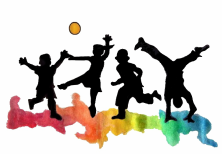 Sherry Bensimon Sherry Bensimon We sat down with Sherry Bensimon, a New York and New Jersey state licensed funeral director, to hear her story of how COVID-19 is impacting her work and home life. We found Sherry after she was interviewed for a New York Times article about how funeral directors are risking their lives to do their jobs. Sherry has given her life to taking care of the dead in all possible ways. From the time she was a teenager, she was a member of the chevra kadisha, a Jewish holy burial group made up of volunteers from the congregation who wash and shroud the deceased to prepare them for burial. She explains that taking care of the dead is very important in her society, “New York is one of the most stringent in terms of taking care of it’s dead. We’re still human beings [upon death]. New York requires special schooling to become advocates for the dead. They can’t speak for themselves, we have to, and that’s why I got into this profession.” A funeral director is responsible for a great mitzvah, a good deed, “I’m the one who is responsible for taking care of the dead. In Judaism, taking care of the dead is one of the highest acts, it’s probably just below saving a life. Had this person not been alive, a small community would not have existed. To do my job is a beautiful, life-affirming thing.” Sherry describes how difficult it has been for her to do her job during this pandemic, “These people died alone and now they are being buried alone. A lot of cemeteries are limiting mourners to 3-8 people at a time. At least I’m there, but the people that should have been there are not. They’re [the deceased] not being given the love and respect they deserve. That is emotionally the hardest for me. How do you tell a family sorry but your cemetery will only allow three people?” “To us, we hold dear so much to our rituals. Here is something that is so important to us, you know, gatherings and funerals are very sacred for a lot of cultures. And that comfort, you just can’t get.” One of the hardest parts of this period is not being able to see her kids very often. “During the peak, I was working 16 hour days and couldn’t see them. They would stay with my ex-husband,” she explains, “Now that it’s quieter, I’m physically there but not mentally there.” Sherry explains that although it’s difficult to not be completely present with her children, they get it. They understand the importance of what she does and they are proud of her for it. Her daughter is even involved with chevra kadisha now. “They’re very practical and they know why I’m tired. I know I was made for this, so that keeps me going.” Sherry wanted to leave us with one clarification, “I think there’s a misnomer that funeral directors are raking it in, but the majority of funeral directors are discounting services because people can’t afford it. We are lucky to have jobs, but it’s not easy work. What do we do with these poor people that we just don't have room for? We are busting our asses, and we want this to end. We want to comfort families again. We want to take part in the beauty of a funeral service. This is a nightmare beyond nightmares.” Self-care activities Child’s pose: This yoga pose is one of the most restorative and grounding postures that we have. Part of the restorative nature of child’s pose comes from releasing physical work and allowing your body to relax and be held by the floor. Here are the step-by-step instructions:
In a yoga class you will often hear something along the lines of “child’s pose is always here if you need a break. You can always come back to it.” The same thing applies to life. Child’s pose is always here if you need a break. You can always come back to it. Rituals: Sherry shares a lot about how the absence of rituals around grief have affected her and those mourning. Rituals can create a sense of belonging in a group, a sense of safety, and aid in the processing of said grief. Rituals can also create a sense of normalcy, predictability, and control. Most of the rituals Sherry talks about are centered around religion or processing grief, but rituals can be focused on any time you need comfort or a sense of completion. If there are rituals you’re missing in your daily life, even something as simple as starting your day with a trip to your favorite coffee shop, it is possible to create new rituals to get through this time. Start with something simple, a mantra or prayer that you say at the end of the work day. Anything you intentionally say or do consistently can impact your thoughts and emotions in a positive way.
Additionally, Sherry serves on the American Foundation for Suicide Prevention (AFSP): New York City Chapter, “I’m part of a wonderful, active, caring board. Our Director, Amy is tireless and focused. AFSP has real scientists doing real research on contributors to suicide and how to go about suicide prevention.” Click the link to learn more. Sherry is also on the board of the Metropolitan Funeral Directors Association which serves as the advocate for funeral directors, and the families they serve, in all five boroughs of New York City and the surrounding areas. You can follow the link above for further information. You can listen to the full episode of the podcast here. Please don’t forget to subscribe and give us a rating wherever you listen to your podcasts. Lastly, please email us at info@playingtolive.org if you know of someone who you’d like to hear on our show, or topics you’d like for us to discuss. Until next time, take care of yourself!
0 Comments
Leave a Reply. |
AboutIn Season 1 of Finding the Helpers, we are bringing personal stories of front line staff and families impacted by COVID-19. Our diverse guests will be invited to share their story of being on the front line, and in combination to their story, two expressive art therapists will provide art and creative activities that will support the challenges the individual and their family is facing. These could include ideas for short relaxation techniques to be done on the front line, creative ways to explain in kid friendly terms what is happening, ways to stay connected to family and children during long periods of isolation, etc. Throughout the podcast, conversation will include mental health insight related to the pandemic, anxiety and stress, grief and loss, resiliency, coping skills, and understanding the pandemic. Presented by the nonprofit Playing to Live's, whose history began in 2014 as a grassroots program focused on bringing play and creativity in the midst of the Ebola deadly viruses. Following our work in Ebola, we have continued our work as advocates and creators for play and expression across the globe in refugee settings, post war countries, and in the United States of America.
AuthorLindsay Bingaman is the Regional Program Manager for Playing to Live, based in Nairobi, Kenya. Archives |



 RSS Feed
RSS Feed